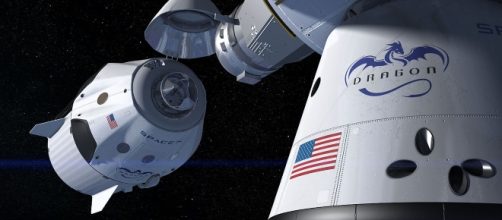A new era of scientific pursuits inspired by modern technological breakthroughs will be sent to the international space station. The precious cargo will be transported to space by the SpaceX's Dragon rocket that will blast off on Monday.
A diverse set of research projects will be sent to space
The International Space Station is about to receive a new generation of scientific researches. According to Dailybreeze, the diversity of the current set of experiments that are scheduled for transport to the ISS are mind boggling and truly astonishing.
The Dragon rocket carries a wide variety of samples.
On board are several live plant roots which will serve as the subjects of a study that aims to document how differently they can grow in space. The craft will also transport artificially cultivated lung tissues which will be subjected to laboratory experiments in space to test their viability for future human
The rocket will also carry a strain of penicillin that has been pulled from the depths of the Pacific Ocean. The fungus was found by NASA researchers who were studying new types of bacteria-resistant antibiotics. According to lab studies, the origin of the fungus dates back to the time when dinosaurs were still roaming the surface of Earth. Principal investigator Brandi Reese of Texas A&M University said that the strain has been sitting underneath the ocean bed for about 73 million years before NASA discovered it.
Researchers are optimistic that studying the sample will lead to the discovery of new compounds that can be used to cure advanced antibiotic resistant infections.
The flight will also carry a certain type of protein that is observed to speed up the progression of Parkinson’s disease. Without the opposing force of gravity, such molecules can be allowed to grow larger, making a more in-depth observation and research is possible. The study is conducted by the Michael J. Fox Foundation. The rocket will also carry Hewlett Packard Enterprise Co.’s “Spaceborne Computer,” a supercomputer that will be tested for functionality under extended rocket commutes.
The space travel itinerary
The array of studies bound for The International Space Station will be transported by SpaceX’s Dragon cargo capsule.
According to Florida Today, the Monday weather forecast is promising. A 70% chance of a space-launch viable weather is predicted. Similar to previous launches, the second stage of the rocket will be discarded in space. After the launch, the rocket’s first-stage booster is expected to make its way back to Earth. SpaceX expects the returning booster to safely land on a robotic barge positioned in the Pacific Ocean off Baja California.
The Dragon is scheduled for launch at 9:30 A.M. from Florida’s Kennedy Space Station. The spacecraft is expected to arrive at the ISS on Wednesday.


